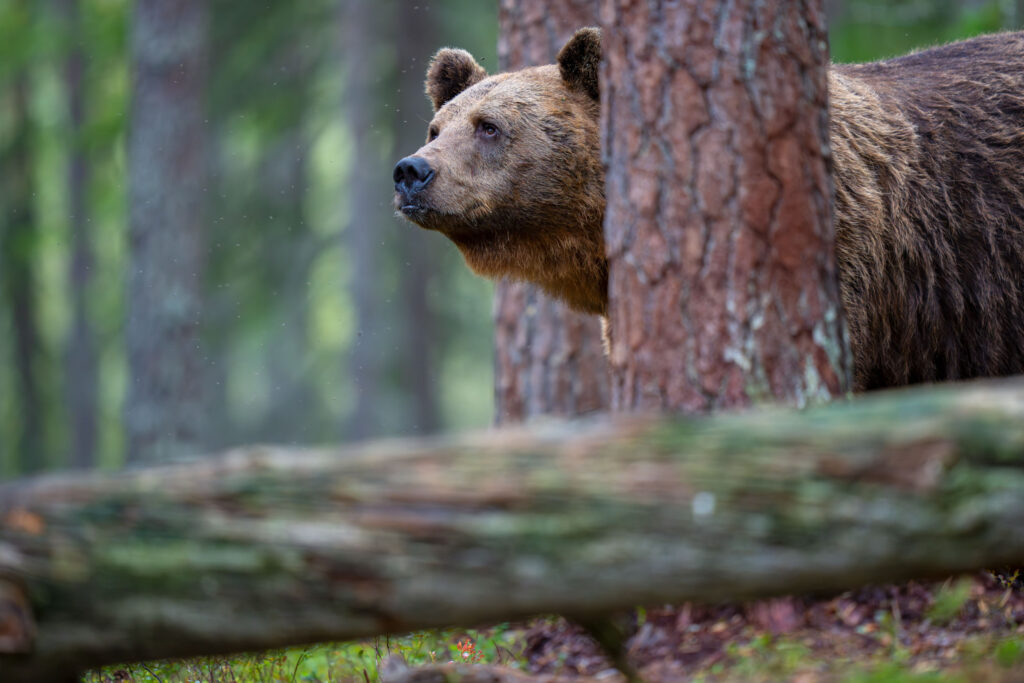
On 21 August, licensed bear hunting will once again commence in Sweden. 465 bears are to be killed in seven counties.
A total of 465 bears will be killed in this year’s licensed bear hunt, which begins on 21 August and lasts until 15 October at the latest. In Jämtland County, 108 bears may be killed, in Norrbotten County 24 bears, in Värmland County a maximum of three bears, with a maximum of one female, in Gävleborg County 70 bears (a maximum of 35 of which may be females), 85 bears in Västernorrland County, 75 bears in Dalarna County, and Västerbotten County will have its largest licensed hunt ever with 100 bears. This is more than twice as many as in 2024. However, the total quota is a slight decrease compared to last year, when 486 bears were allowed to be shot. However, there was an overshoot at that time, which meant that 489 bears were killed.
Appeal against
The Swedish Predator Association has appealed against bear hunting in all counties. The main reason for the association’s appeal is that the favourable conservation status of bears has not been achieved. Favourable conservation status is not only about the number of individuals, but also about the species being able to fully exercise its ecological function throughout its natural range.
Licensed hunting goes against the EU’s purpose and spirit
The Swedish Predator Association believes that licensed hunting of bears is not compatible with Sweden’s obligations under the EU Habitats Directive. The brown bear is one of the species for which Sweden is obliged to establish a strict protection system, and according to the directive, it is prohibited to intentionally kill these species. Exceptions may be made, but Sweden’s population-limiting hunting, the purpose of which is to reduce the number of animals or satisfy special interests, is not a reason for making exceptions. Licensed hunting of strictly protected predators also conflicts with the purpose and spirit of the directive, which is to protect, preserve and restore habitats for wild animals.
Species must be able to perform their ecological function
The European Court of Justice also states that FCS (favourable conservation status) is not only about individual numbers, but also about the species being able to perform its ecological function fully throughout its natural range. In Sweden, bears have disappeared from several former ranges in, for example, southern and central Sweden. The fact that a species only occurs in reduced populations in parts of its range – or that the population is kept on the brink of survival – means that its role in the ecosystem is undermined. This is therefore contrary to the directive’s aim of restoring and preserving biodiversity, and not just preventing the extinction of the species.
The Swedish Predator Association ( Svenska Rovdjursföreningen) has appealed against the licensed hunting of bears in all the counties concerned.
Contact: Magnus Orrebrant, Secretary General and Press Contact
Magnus.orrebrant@rovdjur.se Phone +4670-516 89 31
Photo Staffan Widstrand